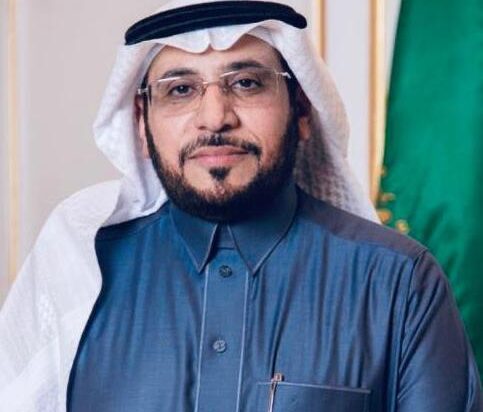9th edition of SPNS Conference and Workshops to draw healthcare professionals

The 9th edition of the Saudi Pediatric Neurology Society (SPNS) Conference and Workshops is organised by Maarefah Management will be held from November 20 – 23, 2024 at Crowne Plaza Riyadh RDC Hotel & Convention, Riyadh, Saudi Arabia. Top healthcare officials, dignitaries, industry leaders, speakers, panellists’, analysts and experts have confirmed their participation at the event.
This year’s conference promises an enriching programme featuring cutting-edge discussions and insights into various pediatric neurology topics, including: Neonatal Neurology. Spinal Muscular Atrophy (SMA). Neuro inflammatory Disorders. Neuromuscular Diseases. Brain and Spinal Injuries and Infections. Epilepsy – Brain and Spinal Tumors. Cerebrovascular Disease. Autism. Movement Disorders. Metabolic and Genetic Disorders.
The main concept behind hosting the 3-days event is to discover the latest updates of common challenging topics in pediatric neurology and do networking with practitioners across Saudi Arabia to share best practices and expertise and exchange knowledge with fellow pediatrician and pediatric neurologists regarding established guidelines, protocols and management in a variety of pediatric neurological disorders.
Prof. Fahad Al Bashiri, President SPNS, professor and consultant Pediatric Neurologist at the College of Medicine, King Saud University, will be sharing pivotal insights at the opening day of the event. As an expert in pediatric neurology, Prof. Bashiri will deliver two impactful presentations that address some of the most pressing challenges in the field of Pediatric Neurology The first presentation will cover findings from a recent clinical trial examining the role of vitamin D in managing epilepsy. This research explores how vitamin D supplementation may influence seizure frequency and severity, potentially offering a new approach to epilepsy care.
The second presentation will focus on the newly developed Gulf Cooperation Council (GCC) guidelines for managing Neurofibromatosis Type 1 (NF1). This talk will discuss the standardized approach proposed for the region, aiming to optimize patient care and outcomes for individuals with NF1.
Dr. Ahmad Alanazi, Chairman of 9th SPNS Congress and Assistant Professor, Consultant Pediatric Neurologist and Epileptologist, Department of Pediatrics, College of Medicine, King Saud University, KSA, said: “As Chairman, I am honoured to lead a forum where leading experts will address the latest challenges and breakthroughs in pediatric neurology. “This year’s conference will spotlight transformative advancements, including the role of artificial intelligence and machine learning in diagnosing and managing epilepsy and neurorehabilitation, signaling a new era in precision care.”
“A primary focus on neurorehabilitation will underscore the importance of early diagnosis and intervention for children with disabilities, with dedicated sessions on cutting-edge medical and surgical approaches to spasticity. Additionally, attendees can expect sessions on innovations in epilepsy treatment, neuromuscular diseases, movement disorders, neurometabolic conditions, and neurocritical care.”
“The SPNS conference remains a premier platform for advancing pediatric neurology, fostering collaboration, and setting new standards of care for young patients in the Kingdom and beyond.” Alanazi concluded.
Prof. Waleed Altwaijri, Consultant Pediatric Neurologist, Professor, King Saud bin Abdulaziz University for Health Sciences; Former-President, Member, SPNS, KSA, said: “My discussion will be about the pediatric neurology in KSA, current landscape, and future prospects.” “The speech will comprise of two parts, the first about the Saudi pediatric neurology Society and the second will be about the pediatric neurology training programme.” “I will be highlighting about the pediatric neurology training programme, it’s establishment and development, as well as the structure of the programme and number of graduates over the years in addition to the current pediatric neurology in Saudi Arabia.” Altwaijri added.
Prof. Mohammad Jan, Professor and Consultant of Pediatric Neurology and Clinical Neurophysiology Department of Paediatrics, Faculty of Medicine, King AbdulAziz University, KSA, said: “Tumor-related epilepsy (TRE) is a frequent and major consequence of brain tumors. Management of TRE is required throughout the course of disease and a deep understanding of diagnosis and treatment is key to improving quality of life. Gross total resection is favored from both an oncologic and epilepsy perspective.”
“Shared mechanisms of tumor growth and epilepsy exist, and emerging data will provide better targeted therapy options. Initial treatment with antiseizure medications (ASM) in conjunction with surgery and/or chemoradiotherapy is typical. The first choice of ASM is critical to optimize seizure control and tolerability considering the effects of the tumor itself. These agents carry a potential for drug–drug interactions and therefore knowledge of mechanisms of action and interactions is needed. A review of adverse effects is necessary to guide ASM adjustments and decision-making.
“This presentation highlights the essential aspects of diagnosis and treatment of TRE with ASMs, surgery, chemotherapy, and radiotherapy while indicating areas of uncertainty. Future studies should consider the use of a standardized method of seizure tracking and incorporating seizure outcomes as a primary endpoint of tumor treatment trials.” Jan concluded.



